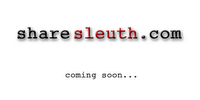President Bush called the recent
New York Times article that revealed the administration is tracking international financial transactions "disgraceful." I call it heroic.
The
Times did what the media is supposed to do -- they told us what our government is doing. That's especially important when our government is secretly doing things that are unethical and illegal...and when there's so much pressure to give the administration our unquestioning support.
As I recall, it wasn't that long ago that Bush got mad when word seeped out that his administration was tapping our international phone calls, without a warrant or judicical oversight. Then, of course, we found out that it wasn't just our international calls they were monitoring, it was domestic calls too. Oh yeah, and later we found out that they're trying to monitor all our e-mails and web browsing trails too.
Given the latest revelation, how much do you wanna bet they're only tracking
international financial transactions? Fat chance.
Yeah, I know some consider it unpatriotic to question anything done in the name of the war on terror (and that includes the president, apparently). But we didn't get to be known as "the land of the free and the home of the brave" by acting like a bunch of stupid, compliant sheep. Our nation's founders weren't afraid to question authority, and we shouldn't be either.
Today's NYT editorial page offered a strong defense of the story, noting that this latest revelation about the administration's spying program "looks like part of an alarming pattern." Here's an excerpt from that editorial, "
Patriotism and the Press":
Ever since Sept. 11, the Bush administration has taken the necessity of heightened vigilance against terrorism and turned it into a rationale for an extraordinarily powerful executive branch, exempt from the normal checks and balances of our system of government. It has created powerful new tools of surveillance and refused, almost as a matter of principle, to use normal procedures that would acknowledge that either Congress or the courts have an oversight role....A half-century ago, the country endured a long period of amorphous, global vigilance against an enemy who was suspected of boring from within, and history suggests that under those conditions, it is easy to err on the side of security and secrecy. The free press has a central place in the Constitution because it can provide information the public needs to make things right again. Even if it runs the risk of being labeled unpatriotic in the process.
We need to run that risk. Democracy is too important to leave to the politicians.
